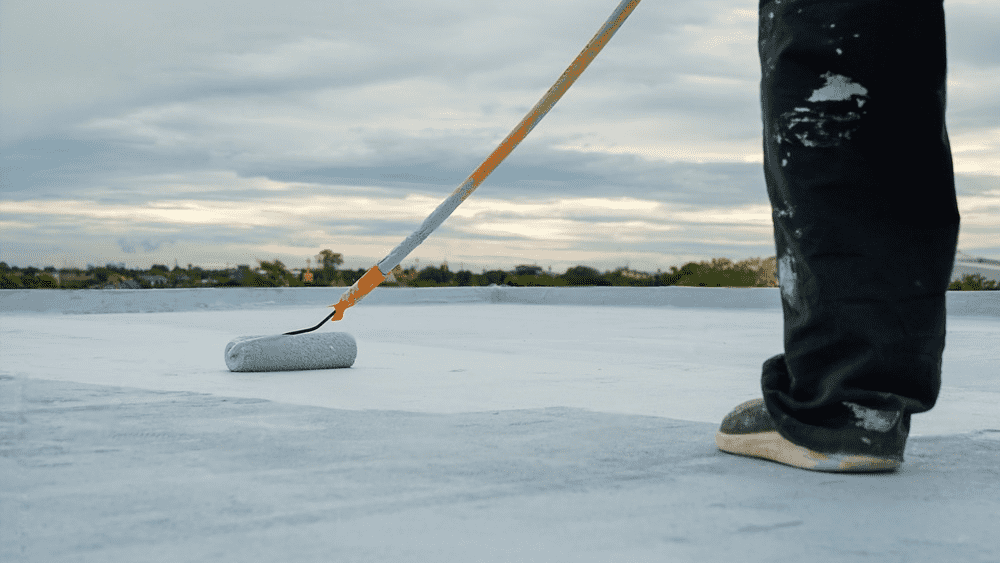Waterproofing is crucial for protecting structures from water damage. Choosing the right waterproofing materials depends on the specific needs of your project. Here’s a detailed guide to help you make an informed decision.
1. Understanding the Importance of Waterproofing
Waterproofing prevents water infiltration, which can cause structural damage, mold growth, and other issues. It’s essential for basements, roofs, walls, and foundations. Proper waterproofing ensures the longevity and safety of your structure.
2. Common Types of Waterproofing Materials
1. Cementitious Waterproofing
Description: Cement-based and easy to apply, often used in internal wet areas like bathrooms.
Features:
- Easy application
- Resistant to wear and tear
- Economical
Best For: Bathrooms, kitchens, water tanks, and swimming pools.

2. Liquid Waterproofing Membrane
Description: A thin coating consisting of a primer coat and two topcoats, applied by spray, roller, or trowel.
Features:
- Flexible and adaptable
- Forms a seamless layer
- UV resistant
Best For: Roofs, balconies, and terraces.

3. Bituminous Coating
Description: Known as asphalt coating, it’s a popular choice for waterproofing.
Features:
- Durable and versatile
- Resistant to water and dampness
- Affordable
Best For: Concrete foundations and retaining walls.

4. Bituminous Membrane
Description: Commonly used in low-slope roofs due to its proven performance.
Features:
- Excellent waterproofing properties
- High tensile strength
- Long-lasting
Best For: Flat roofs and underground structures.
5. Polyurethane Liquid Membrane
Description: High-quality liquid-applied membrane used for exposed areas.
Features:
- Highly flexible
- UV stable
- Seamless application
Best For: Roof decks, balconies, and terraces.
3. Factors to Consider When Choosing Waterproofing Materials
- Location and Climate: Choose materials that withstand local weather conditions.
- Surface Type: Different materials adhere better to specific surfaces (e.g., concrete, wood, metal).
- Application Method: Consider ease of application and whether professional help is needed.
- Durability: Assess the longevity and maintenance requirements of the material.
- Cost: Balance between cost-effectiveness and quality.
4. Tips for Successful Waterproofing
- Proper Surface Preparation: Ensure the surface is clean and dry before application.
- Follow Manufacturer Instructions: Adhere to guidelines for mixing and applying materials.
- Regular Inspections and Maintenance: Regularly check for signs of wear and repair any damage promptly.
Final Thoughts
Selecting the right waterproofing services is vital for the protection and durability of your structure. By understanding the features and best uses of each type, you can make an informed choice that ensures long-term success. Whether you’re waterproofing a basement, roof, or another area, investing in quality materials and proper application will save you from future headaches and costly repairs.
Contact Us
Call Us: 443 551 0006
Website: www.usabuildersanddevelopers.com
Address: 2144 Priest Bridge Court, Suite 8, Crofton, MD 21114, USA
FAQs About Waterproofing Materials
The best waterproofing materials for homes include cementitious coatings, bituminous membranes, polyurethane sealants, and liquid rubber. Each offers strong protection against moisture and is ideal for different surfaces like walls, roofs, and basements.
Polyurethane is one of the most durable waterproofing materials. It offers high flexibility, UV resistance, and long-lasting performance on both flat roofs and exterior walls.
For basements, cementitious waterproofing and liquid-applied membranes are effective. These materials seal porous concrete and prevent groundwater from seeping in.
Yes, some materials like bituminous coatings and liquid membranes are versatile. However, interior and exterior applications may require different formulations for the best results.
Most quality waterproofing materials last 10 to 20 years. Their lifespan depends on the material type, surface preparation, and maintenance.
Liquid membranes offer seamless coverage and are ideal for irregular surfaces. Sheet membranes provide consistent thickness and are preferred for large, flat areas. The best choice depends on your specific application.

